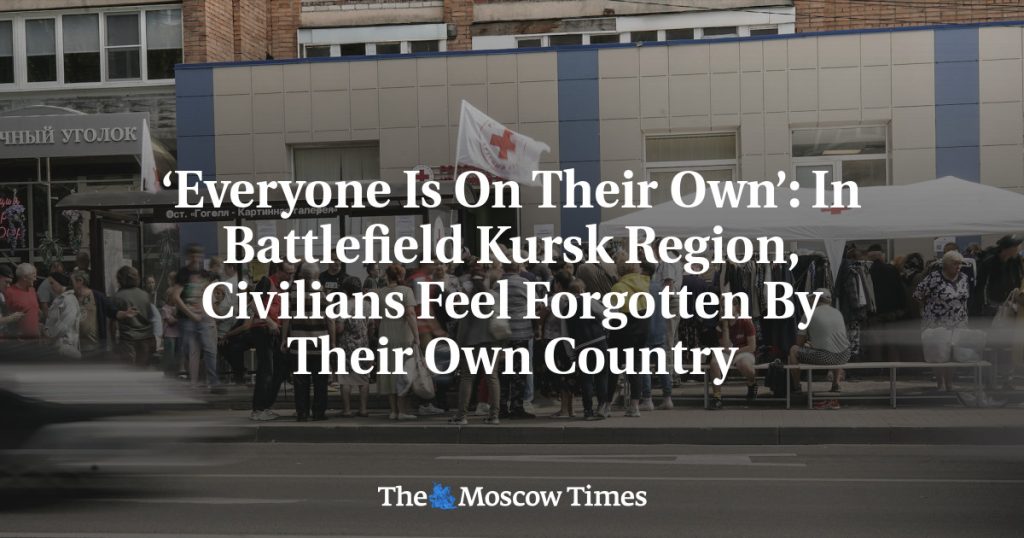Civilians in the Kursk region of Russia are expressing growing anger towards Ukraine, fellow Russians, and their own government as the incursion by Ukrainian forces into the region continues for a third week. They feel abandoned and believe that the authorities have downplayed the severity of the situation. People in the region are frustrated with the lack of government action and fear for their safety as the war reaches their doorstep. Despite efforts by prominent charities and authorities to raise humanitarian aid, officials seem to be minimizing the significance of the incursion in national discourse.
Russian President Vladimir Putin has yet to publicly address the situation in Kursk, leading to further frustration among residents who feel neglected by their own government. While some media outlets have used the incursion to promote a pro-war narrative, individuals on the ground are suffering the consequences of the conflict. Ukraine’s forces have captured numerous settlements in the region and taken many prisoners, including conscripts. Residents of Kursk who have spoken out express disappointment in the lack of response and support from officials, but stop short of directly blaming Putin for the situation.
As the conflict escalates, emotions towards both the Russian government and Ukraine are running high among residents of the Kursk region. Some individuals feel abandoned and angry at the lack of effective action from the authorities, while others express disdain towards Ukraine’s military. The escalation of the conflict has resulted in casualties, injuries, and mass evacuations, leaving many people displaced and uncertain about the future. Human rights organizations have reported a significant number of people missing as a result of the incursion, adding to the chaos and confusion in the region.
Despite the challenges facing residents in Kursk, there are varying opinions on how to view the situation. Some individuals choose to sympathize with Ukrainians, recognizing that they are also victims of the conflict, while others harbor resentment towards Ukraine and those who support the country. The war has brought about a shift in attitudes towards various groups, with many feeling a sense of helplessness and frustration with the ongoing situation. The conflict has caused a divide in opinions and emotions, leading to heightened tensions and uncertainty among civilians caught in the crossfire.
While public interest in the conflict may have been waning before the incursion in Kursk, experts believe that dissatisfaction with the authorities’ response to the attack is localized and may not have a significant impact on nationwide sentiment. The ongoing conflict has the potential to strengthen anti-Ukrainian and anti-Western sentiments in Russia, further uniting the population against external threats. For ordinary civilians in Kursk, the situation remains tense and unpredictable, with many feeling angry, frustrated, and powerless in the face of the escalating conflict. The impact of the incursion is deeply felt by those directly affected, highlighting the human cost of war in the region.














